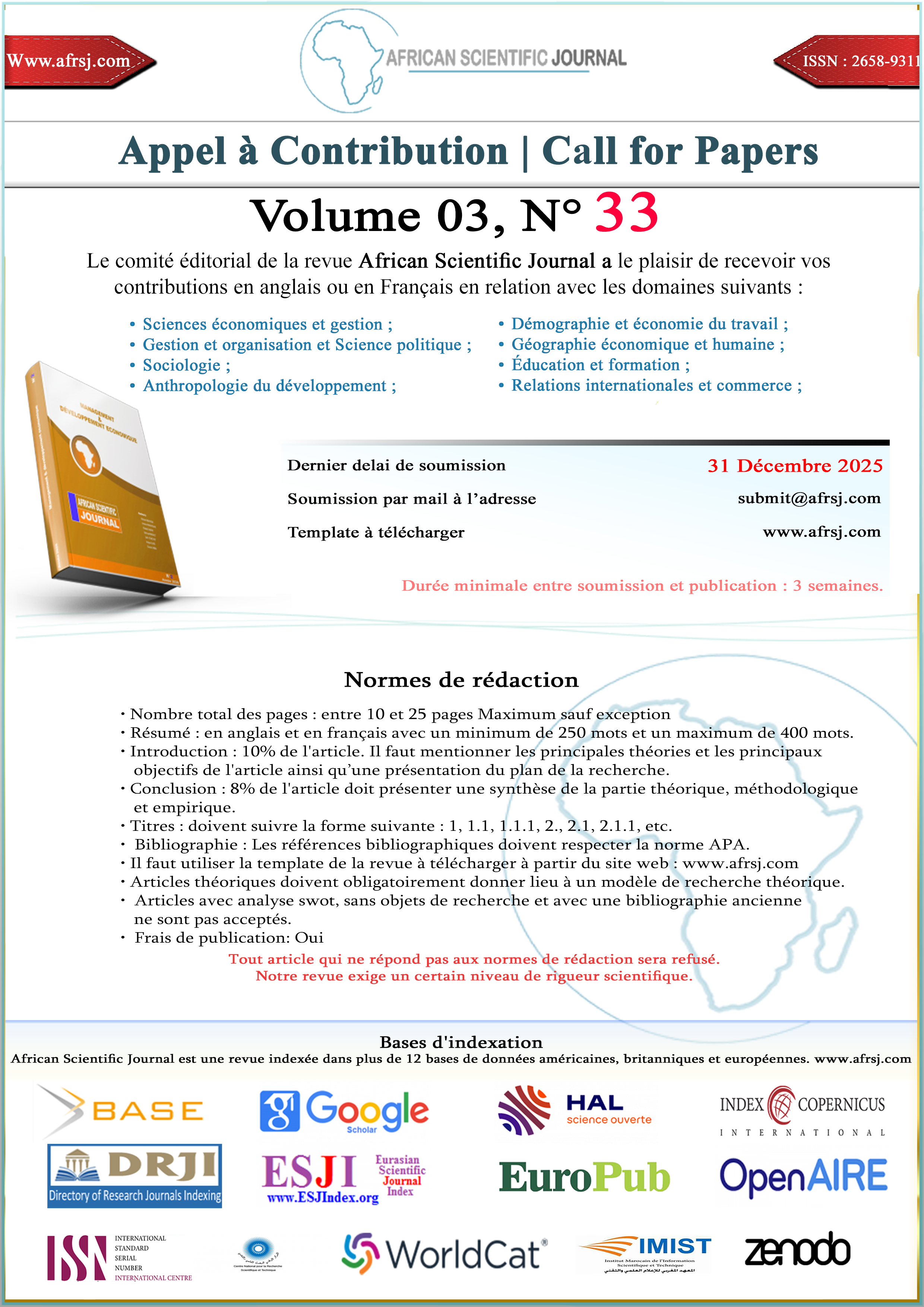La Déclaration En Douane: Les Enseignements De La Théorie Des Coûts De Transaction
DOI :
https://doi.org/10.5281/zenodo.10124411Mots-clés :
coûts de transaction, asymétrie de l'information, rationalité limité, déclaration en douane, Accruals discrétionnairesRésumé
Le présent article tente d'apporter une analyse au modèle actuel de la déclaration en douane mis en vigueur, depuis 1991, par les autorités douanières de Maroc et ce à la lumière de la théorie des coûts de transaction fondée par R.Coase et développée par O.E Williamson. Pour atteindre cet objectif, la méthodologie adoptée consiste à exposer dans un premier temps les fondements de la théorie de coûts de transaction puis à présenter et à rapprocher ledit modèle à ladite théorie avant de l'analyser en vue de dégager les enseignements aptes à le rendre plus adaptatif et plus performant.
A la lumière de cette théorie, l'analyse a conclu que le modèle actuel de déclaration demeure inadapté à la structure et à la chaine de valeur du commerce international actuel et souffre de carence informationnelle qui positionne la douane dans une situation d'asymétrie de l'information en réduisant son immunité contre les risques probables de survenance des cas de fraude (coûts ex-post) . Il est conclu aussi que ce modèle condamne l'approche d'analyse des risques pratiquée par la douane qui se base principalement sur la gestion intégrée des informations disponibles au niveau de la déclaration
Téléchargements
Publiée
Comment citer
Numéro
Rubrique
Licence
(c) Tous droits réservés African Scientific Journal 2023

Ce travail est disponible sous licence Creative Commons Attribution - Pas d'Utilisation Commerciale - Pas de Modification 4.0 International.





















